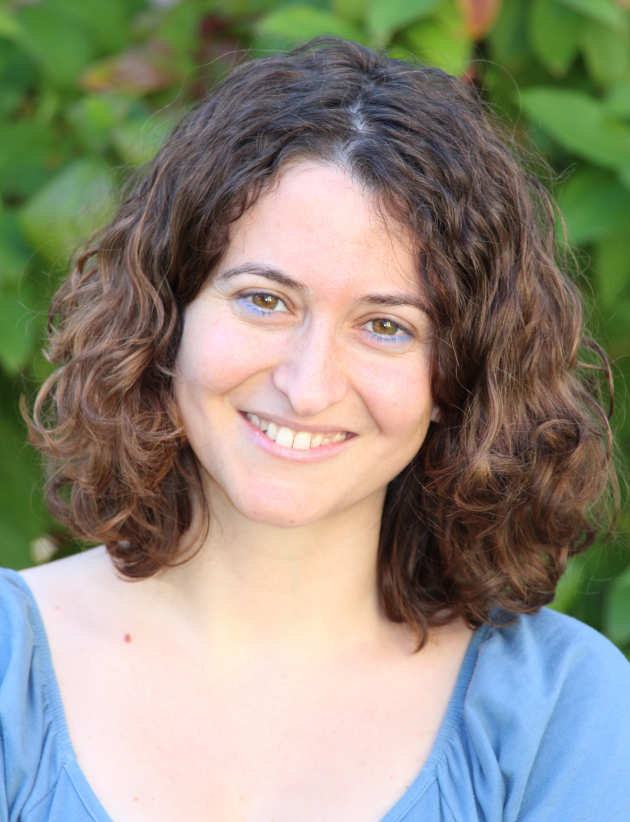Dr Olga-Joan Ktenidou graduated from Imperial with an MSc in Soil Mechanics and Engineering Seismology in 2004. She now works as an associate researcher and Head of Seismicity Analysis at the National Observatory of Athens. Following an email from Imperial in autumn 2019 informing alumni of the 2020 British Council Study UK Alumni Awards, she submitted her application and was selected from over 1,000 entries as one of two finalists in the Professional Achievement category for Greece.

What did you learn during your time at Imperial, in class or out?
The numerous group activities were particularly instructive to me, as I’d been more used to working individually up until then. Having interactions with diverse groups of people is enriching on all levels, not just in terms of knowledge. I must say I also learnt a whole lot about jazz and blues music during that year, as I borrowed each and every CD that was then available at the central library - remember, that was when we still used to use floppy disks!
Who did you find inspiring at Imperial and why?
Prof. John Burland! Anyone who’s visited Pisa and taken the usual funny photo "holding" its leaning tower should know the name of the engineer who literally stabilised it. We had the privilege to be taught by this giant of soil mechanics and we were humbled by his kindness, modesty, sense of humour and soft-spokenness.
How did you find life at Imperial as a woman?
As a student, my gender never entered the equation. We were treated equally and we treated everyone else equally, end of story! Our class boasted women of different countries, backgrounds, religions and family choices. I have no sisters by birth, but my year at Imperial gave me two sisters by choice, Vicky and Stella.
What is your fondest memory of your time here?
Almost our entire class would get together on a Friday afternoon at the student union bar, which was then called Southside. Even some of our teachers joined us on occasion, which was wonderful. Other than this, our various field trips also brought us closer together and made our MSc journey more special.
Being at Imperial helped me find my niche between engineering and seismology, and the self-motivation to pursue this academic path."
Please tell us a bit about the work you’re doing now.
Since returning to Greece, I’m an associate researcher at the National Observatory of Athens. My field is engineering seismology and I work with seismic ground motions (i.e., how the ground shakes under an earthquake), studying their amplification, attenuation and variability depending on the soil conditions. When we try to predict seismic hazard, some of the largest uncertainties stem from this issue. So I hope that, in time, progress in this field will lead to improvements in seismic design codes and safer structures and infrastructures.
How has what you learnt at Imperial helped you in your career so far?
I think being at Imperial helped me find my niche between engineering and seismology, and the self-motivation to pursue this academic path. It was also the first full year I spent away from home, so I suspect it must have enhanced my extroversion, as eventually, I went on to spend another 10 years abroad researching in Mexico, France, Germany, the US and again the UK!
What are your plans for the future?
The wackiest plan I have is actually with a colleague from the UK, Dr Georgios Kampas. We will study ground motions on the moon coming from moonquakes and meteor impacts, and how these may affect hazard for future extraterrestrial structures.
What are you most proud of in your life?
I guess I am most surprised by the fact that I was able to make it from a schoolchild who got made fun of and who was too intimidated to present to her classmates to an adult who can address her own students, an international expert panel or a conference audience and - most of the time - enjoy it.
Do you have a favourite quote or saying?
When I taught in the UK, I used to give my students a quote a day by one of the greatest minds of all time, Nikos Kazantzakis. I would like to share two, and I hope his words will shine through my clumsy translation:
"You should love responsibility. Tell yourself: I, and I alone have a duty to save the world. If it is not saved, it is my own fault."
"And which is the right road? The one going uphill."